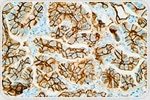| ||||||||||||||||||||||||||||||||||||
| ||||||||||||||||||||||||||||||||||||
| ||||||||||||||||||||||||||||||||||||
| ||||||||||||||||||||||||||||||||||||
| ||||||||||||||||||||||||||||||||||||
| ||||||||||||||||||||||||||||||||||||
lunes, 13 de agosto de 2018
Breast Cancer - Aug 13, 2018 Edition
Health News and Information - News Medical
Suscribirse a:
Enviar comentarios (Atom)










































No hay comentarios:
Publicar un comentario